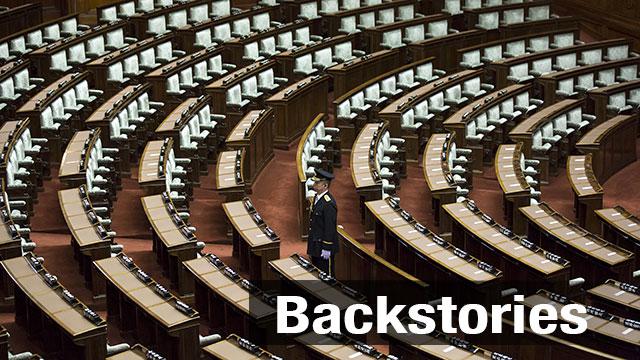Expectations on education, health and pensions
The survey asks if government spending should either increase or decrease compared to now in a list of areas, including "education," "health," and "pensions."
In Japan, almost 60 percent of respondents said government spending should be "much more" or "more" for "education" and "health care."
But this is low compared to other places. Regarding "education", more than 70 percent of respondents in many countries, with up to 90 percent in some, said that the government should increase spending compared to now.
In the background may be the typical Japanese view of education that has taken root in this country. Based on a survey carried out in Japan by NHK's Broadcasting Culture Research Institute, many households do not regret spending on education even if it is a burden. There is an established notion that it is expected for families to bear educational costs.

In the category of health and medicine, while more than 70 percent of the citizens in many countries said there should be "more" government spending, the ratio in Japan was low compared to other countries, at 55 percent.
For pensions, the ratio in Japan is also low compared to other countries, at 46 percent. In both Finland and France, which also have a large population of aging people over 65 years old and have large pension burdens with respect to their GDPs, only a small percentage of respondents said there should be "more" government spending.

Expectations on reducing income differences
The survey also asks respondents about the government's responsibility in a variety of areas, including correcting income disparity and keeping prices under control.
While 65 percent of the Japanese people said it's the "government's responsibility" to "correct income differences between the rich and the poor," the percentage is low compared to other countries. While the poverty rate in Japan and the US is high among industrialized countries, a low percentage of people believe that the government has a role to correct income disparity.

Expectations on economic measures
The situation is different in terms of "economic measures." Nearly 90 percent of the Japanese responded that it's the government's responsibility to "keep prices under control." In this category, Japan places in the top-third among all countries.
Moreover, 85 percent of Japanese people agreed that the government should "(provide) support for industry to develop new products and technology," which ranks in the mid-range compared to other countries.

The nation's expectations for the government to improve the economy may be one of the underlying reasons for Japanese Prime Minister Shinzo Abe's administration highlighting the economic benefits of "Abenomics."
Moreover, Japan's national debt at the end of 2018 has exceeded a record 1.1 quadrillion yen, or around 9.9 trillion dollars, creating a serious challenge if the government is to achieve fiscal soundness. In this regard, the Japanese people may be wary of the government's spending with respect to medical care and pensions.
The "Role of Government 2016" survey, carried out by the International Social Survey Programme, or ISSP, was released in September 2018. It was carried out between 2016 to 2017, covering 35 countries and regions. NHK's Broadcasting Culture Research Institute was assigned to implement the survey in Japan.
Data:
ISSP Research Group (2018): International Social Survey Programme: Role of Government V - ISSP 2016. GESIS Data Archive, Cologne. ZA6900 Data file Version 2.0.0, doi: 10.4232/1.13052

